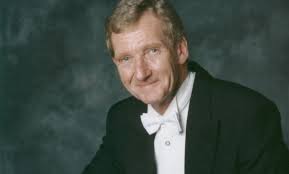Christchurch Blacklands, Hastings, 30 November 2013
Advent is here and Stephen Page eased us into the season with music and carols to prepare us for the coming festivities. As Advent is a time of reflection, as well as often stressful preparation, it was good that so many of his pieces were reflective.
After a joyous fanfare by Gerre Hancock and the singing of Joy to the World he played Bach’s Wachet Auf and Daquin’s Noel; Grand Jeu et Duo. The former was familiar and given a gentle introspection while the latter twinkled merrily.
We sang O come, O come, Emmanuel before four linked pieces. Heathcote Statham’s Fantasia on Veni Emmanuel has wonderfully rolling English phrases and would be worth hearing again without the seasonal context. Eric Thiman’s Postlude on Adeste Fidelis seemed rather light-weight by comparison but Harrison Oxley’s Prelude: Whence is that goodly fragrance? brought a time of genuine meditation. Anyone who might just have nodded off while reflecting was soon awake thanks to the Dance of the Snowmen by Howard Blake.
Following Lo! He comes we came to the final set of pieces opening with William Lloyd Webber’s Rhapsody of Helmsley. While light in texture it aptly reflects the alleluias of the hymn. Philip Marshall’s Prelude on Forest Green proved as introspective as the Oxley had been and was followed by Samuel Wesley’s The Christmas carol varied as a Rondo – which turns out to be a set of variations on God rest ye merry with fine changes of tone and texture.
After a rousing rendition of Hark the herald angels sing, and Colin Mawby’s stirring variation we were ready for coffee and mince pies.
Blacklands organ is potentially a fine instrument but there are so many problems with it at present that not even an organist as skilful as Stephen could cover the difficulties he was having both in registration and individual notes. There may be no cyphers but it is the difference between driving a new car and one that is verging on the veteran and in need of a serious service and overhaul. There is only so much one can do.
The large audience/congregation were very appreciative of an event which subtly bridged the gap between service and concert, allowing both enjoyment of the music and time to reflect. Maybe this is a pattern for other events? BH



